Your kidneys are your body's natural filtration system. Every day, they process around 50 gallons of blood to remove waste, excess fluids, and toxins—sending them out through your urine. Over time, however, unhealthy dietary habits can put excess strain on your kidneys, increasing the risk of damage, reduced function, or chronic kidney disease (CKD).
The good news is that your daily diet can make a major difference. Making targeted food and drink changes can help reduce kidney stress, support natural detoxification, and maintain long-term health.
This article explores how dietary changes help cleanse your kidneys, which foods to eat and avoid, and practical tips to start supporting your kidneys today.
Why Do Your Kidneys Need Cleansing?
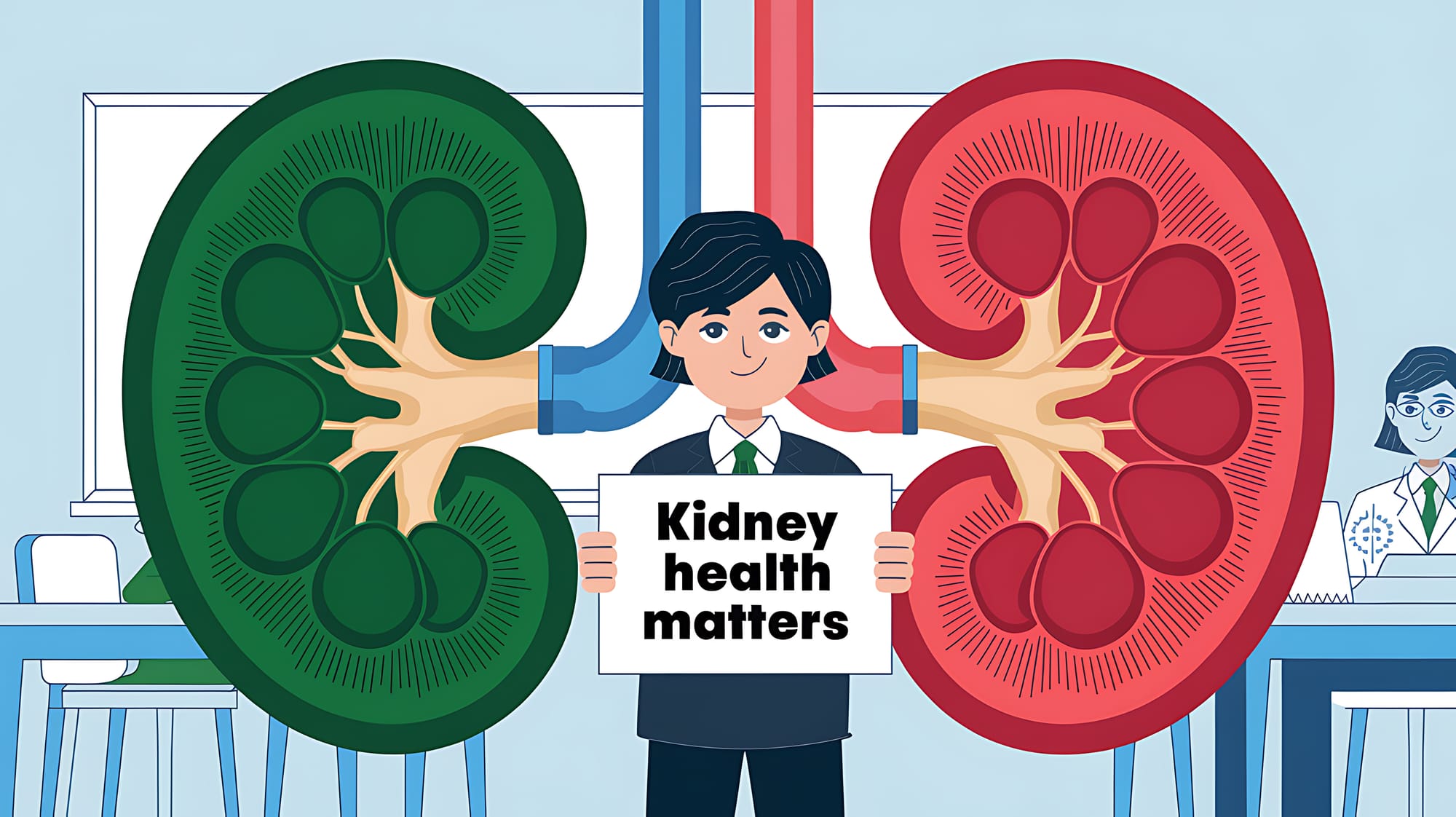
Unlike your liver or lungs, your kidneys don’t have a visible sign when they’re under stress—until damage is more advanced. Common contributors to kidney strain include:
- High sodium intake
- Dehydration
- Excess animal protein
- Processed foods and added sugars
- Overuse of pain medications or certain supplements
A “kidney cleanse” doesn’t mean drinking only juices or buying expensive detox kits. Instead, it means eating and drinking in a way that reduces kidney workload, supports waste removal, and prevents further damage.
How Diet Changes Help Cleanse Your Kidneys

Now let's check out what are the impacts your diet change can make on your kidney health and what you need to do for that.
1. Improved Hydration Flushes Out Toxins
Water is essential for kidney filtration. It helps dilute waste and salts in your urine, reducing the risk of kidney stones and infections.
What to do:
- Aim for 2.5 to 3 liters of water per day (unless otherwise directed by a doctor).
- Add lemon, cucumber, or mint for added detox benefits.
- Avoid sugary sodas and energy drinks, which can dehydrate and strain the kidneys.
2. Reducing Sodium Lightens the Kidney Load
Too much sodium increases blood pressure, which is one of the leading causes of kidney damage.
What to do:
- Choose fresh foods over canned or packaged products.
- Replace salt with herbs, garlic, lemon juice, or vinegar for flavor.
- Limit sauces, condiments, and restaurant meals that often contain hidden salt.
3. Limiting Animal Protein Reduces Waste Buildup
Red meat, poultry, and dairy products generate more nitrogen-based waste, which kidneys must filter out.
What to do:
- Opt for plant-based proteins like beans, lentils, tofu, and quinoa.
- Eat smaller portions of meat (3–4 ounces) and only a few times a week.
- Try one or two meatless meals per day during a kidney reset.
4. Adding More Fruits and Vegetables Supports Detox
Colorful fruits and vegetables provide antioxidants, vitamins, and water content that help reduce inflammation and protect kidney cells.
What to do:
- Choose low-potassium options like apples, blueberries, cauliflower, red bell peppers, and cabbage (especially important for people with CKD).
- Include hydrating produce such as cucumbers and watermelon in your daily meals.
- Steam or lightly cook vegetables to make them easier on the kidneys.
5. Avoiding Processed Foods Reduces Toxin Exposure
Highly processed snacks, frozen meals, fast food, and sugary treats contain artificial additives, preservatives, and phosphorus-based chemicals that harm kidneys over time.
What to do:
- Read labels and avoid ingredients like “phosphate” or “sodium benzoate.”
- Cook meals at home to control what goes into your food.
- Choose whole ingredients and simple recipes.
6. Incorporating Kidney-Friendly Herbs and Teas
Some herbs and herbal teas have mild diuretic properties and can support urinary tract and kidney function.
What to do:
- Try teas like dandelion root, nettle leaf, or parsley (1 cup per day is enough).
- Use fresh herbs like cilantro, basil, and garlic to enhance both taste and kidney health.
- Always check with a doctor before starting herbal supplements—especially if you have CKD or take medications.
Signs Your Diet May Be Supporting Kidney Health
As your diet improves, you may notice:
- More consistent urination
- Less water retention or swelling
- Improved energy and mental clarity
- Balanced blood pressure
- Reduced sugar cravings and bloating
While these signs aren’t always immediate, consistent changes in your diet can help prevent long-term kidney problems and improve overall well-being.
Tips to Start a Kidney-Cleansing Diet
- Start with one change per day (like cutting salt or drinking more water).
- Focus on fresh, whole foods and avoid the center aisles of grocery stores.
- Keep a food journal to track your meals, water intake, and any symptoms.
- Plan simple meals like vegetable soups, steamed greens, fruit bowls, or grain salads.
- Consider a 5-day kidney reset meal plan to give your kidneys a break.
Easy Kidney-Cleansing Recipes to Try (With Preparation Steps)
Incorporating the right recipes into your meals can make kidney-friendly eating both enjoyable and effective. Each of the following dishes uses ingredients known to support kidney function by reducing inflammation, enhancing hydration, and minimizing excess sodium, potassium, and phosphorus.
Here are five easy recipes along with preparation steps:
1. Cucumber-Apple Detox Salad
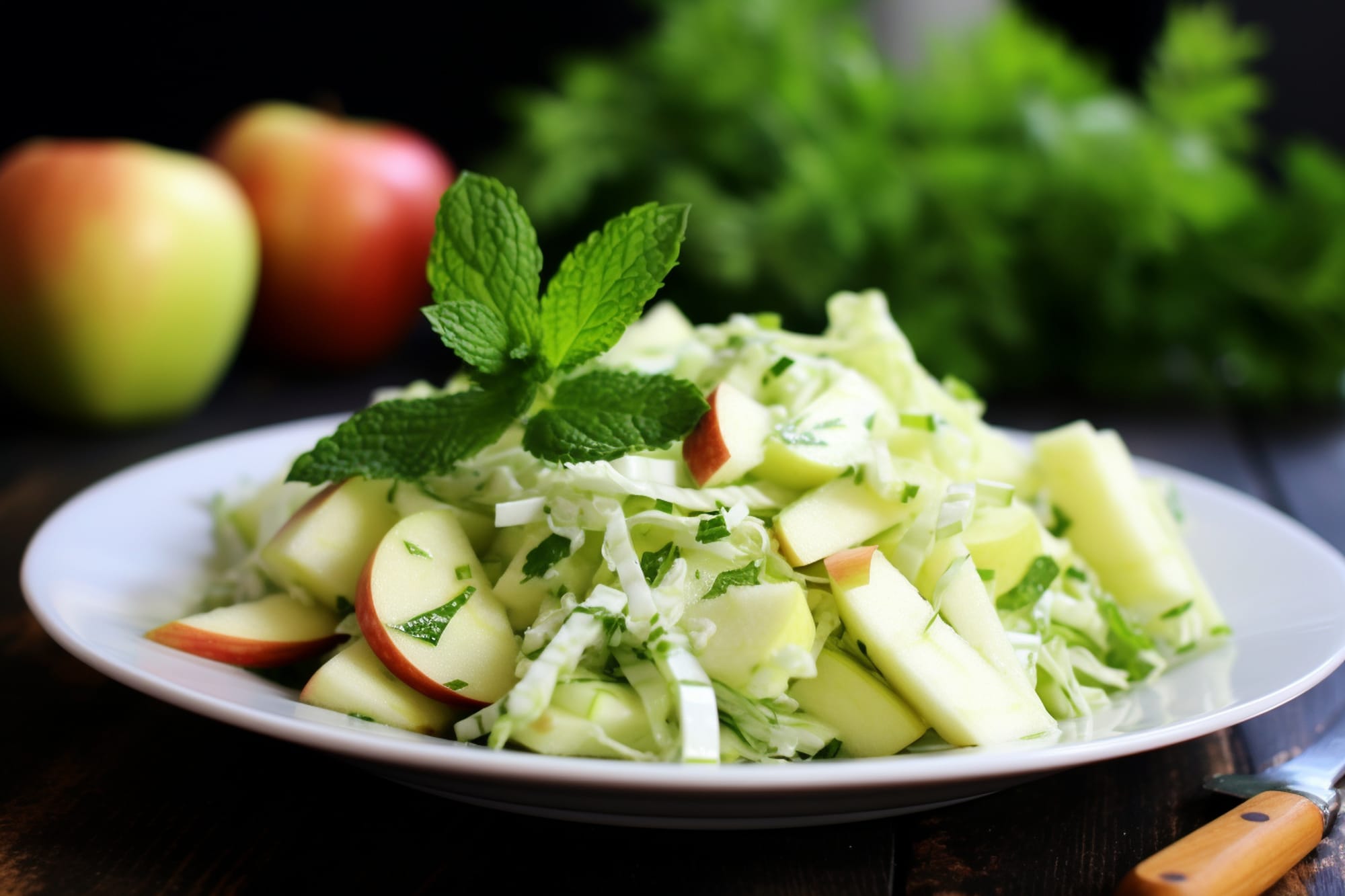
Why it's good for kidneys:
Cucumber hydrates and flushes toxins, while apples provide fiber and antioxidants to support digestion and kidney filtration.
Ingredients:
- 1 cucumber, thinly sliced
- 1 apple, diced
- 1 tbsp lemon juice
- 1 tsp olive oil
- Fresh parsley or mint (optional)
- A pinch of black pepper
Preparation:
- Slice cucumber and dice the apple into bite-sized pieces.
- Toss in a bowl with lemon juice and olive oil.
- Add chopped parsley or mint and black pepper.
- Chill for 10 minutes and serve fresh.
2. Cauliflower and Red Pepper Soup
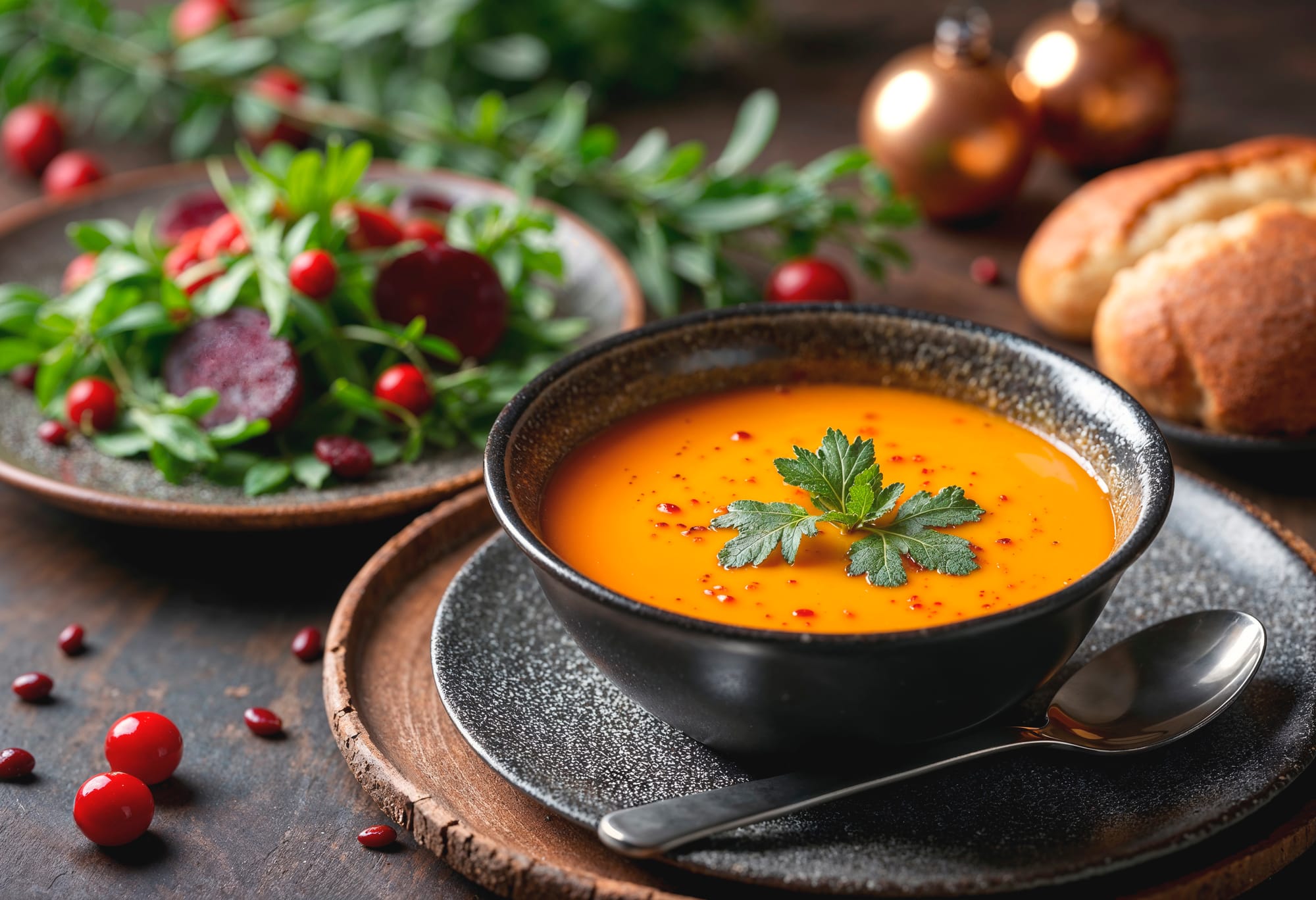
Why it's good for kidneys:
Cauliflower is low in potassium and high in detox-supporting compounds. Red bell pepper adds antioxidants and vitamin C to reduce kidney inflammation.
Ingredients:
- 1 small cauliflower, chopped
- 1 red bell pepper, diced
- 1 garlic clove, minced
- 2 cups low-sodium vegetable broth
- 1 tsp olive oil
- Dash of turmeric and black pepper
Preparation:
- In a pot, sauté garlic and bell pepper in olive oil for 2–3 minutes.
- Add cauliflower and broth. Simmer for 15–20 minutes until soft.
- Blend the mixture until smooth.
- Add turmeric and pepper, stir, and serve warm.
3. Steamed Greens with Garlic and Lemon
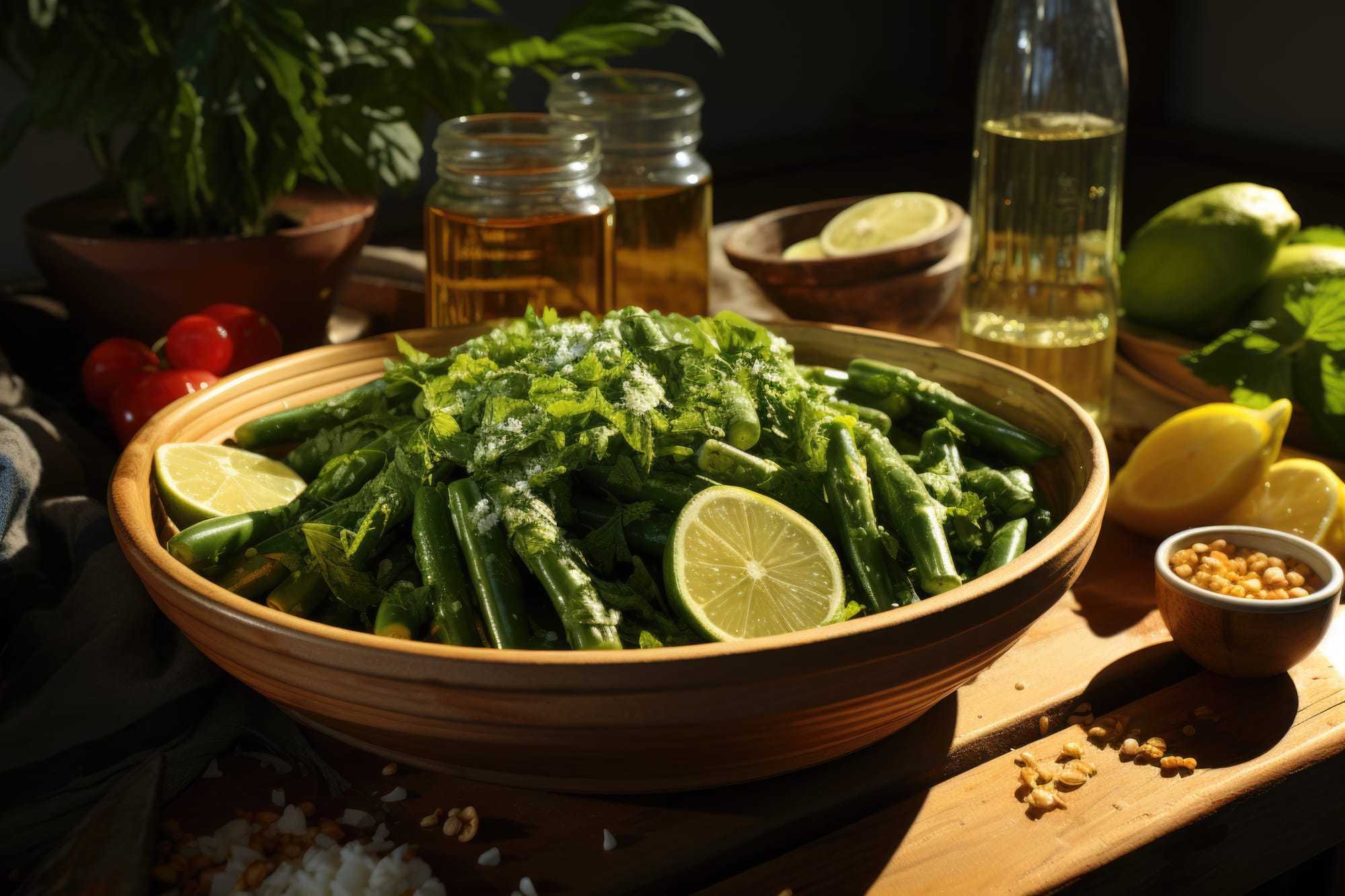
Why it's good for kidneys:
Leafy greens provide detox support without overloading potassium when eaten in moderation. Garlic helps reduce blood pressure and inflammation.
Ingredients:
- 1 cup kale or spinach, chopped
- 1 garlic clove, minced
- 1 tsp olive oil
- 1 tsp lemon juice
Preparation:
- Lightly steam greens for 3–4 minutes until wilted.
- In a separate pan, sauté garlic in olive oil for 1 minute.
- Add steamed greens and toss.
- Drizzle with lemon juice before serving.
4. Apple-Cinnamon Quinoa Bowl
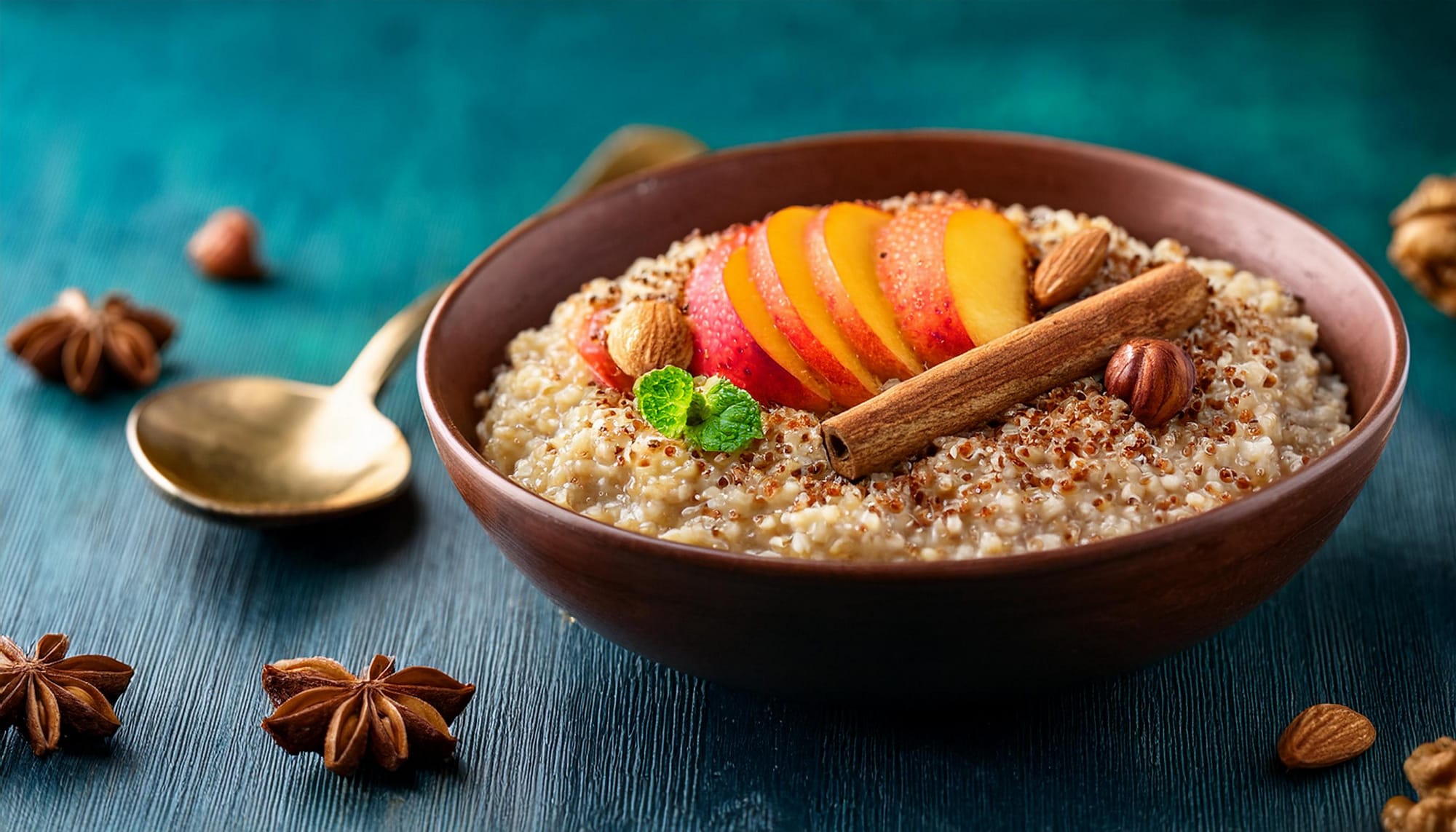
Why it's good for kidneys:
Quinoa is a plant-based protein that’s easier on kidneys than animal sources. Apples and cinnamon add fiber and blood sugar balance.
Ingredients:
- ½ cup cooked quinoa
- ½ apple, diced
- ½ tsp cinnamon
- 1 tsp maple syrup (optional)
- 3 tbsp unsweetened almond milk
Preparation:
- Combine quinoa, apple, cinnamon, and almond milk in a small saucepan.
- Heat gently until warm and creamy (about 5 minutes).
- Stir in maple syrup if desired and serve.
5. Zucchini and Avocado Wrap
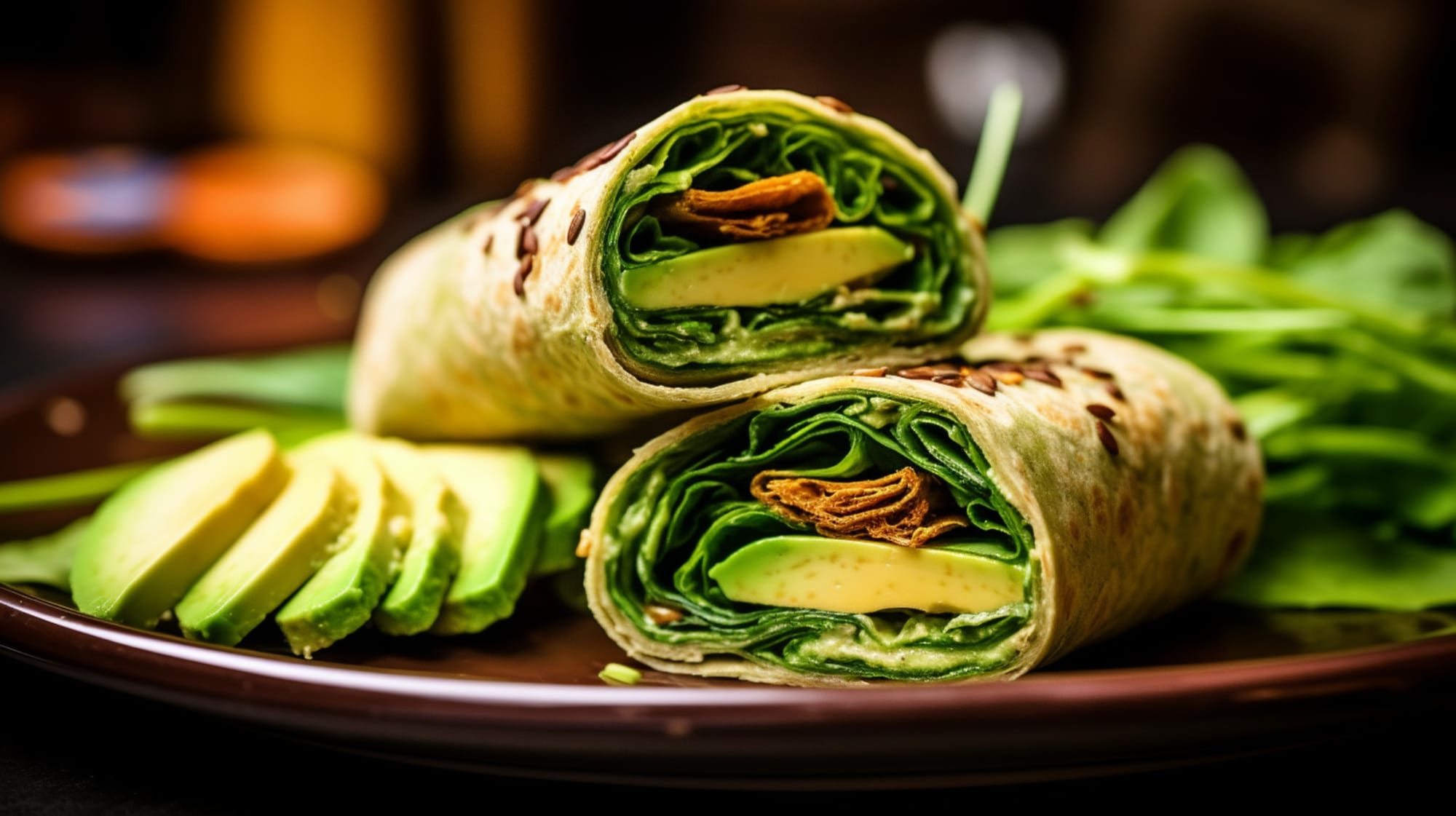
Why it's good for kidneys:
Zucchini hydrates and soothes, while avocado (in small amounts) provides anti-inflammatory fats. This wrap is satisfying but light on the kidneys.
Ingredients:
- 1 small zucchini, spiralized or thinly sliced
- ¼ avocado, sliced
- Handful of romaine lettuce
- 1 whole wheat or low-sodium wrap
- 1 tsp hummus or lemon juice as spread
Preparation:
- Spread hummus or lemon juice over the wrap.
- Layer with lettuce, zucchini, and avocado.
- Roll tightly, cut in half, and serve fresh.
Final Thoughts
Your kidneys play a vital role in keeping your body balanced and free of waste. By making simple, intentional dietary changes—like drinking more water, reducing sodium, and avoiding processed foods—you’re giving your kidneys the support they need to function efficiently.
Cleansing your kidneys doesn’t require expensive programs or drastic detoxes. It starts with your plate, your cup, and your daily habits.
If you have kidney disease, diabetes, or high blood pressure, always consult a healthcare professional or renal dietitian before making major changes to your diet.
